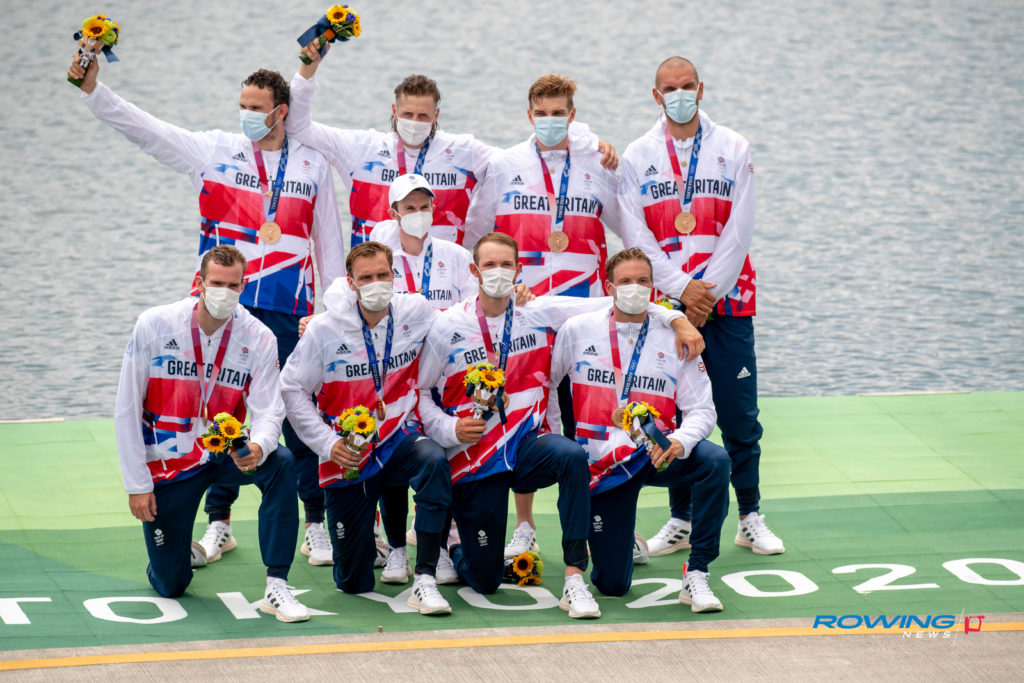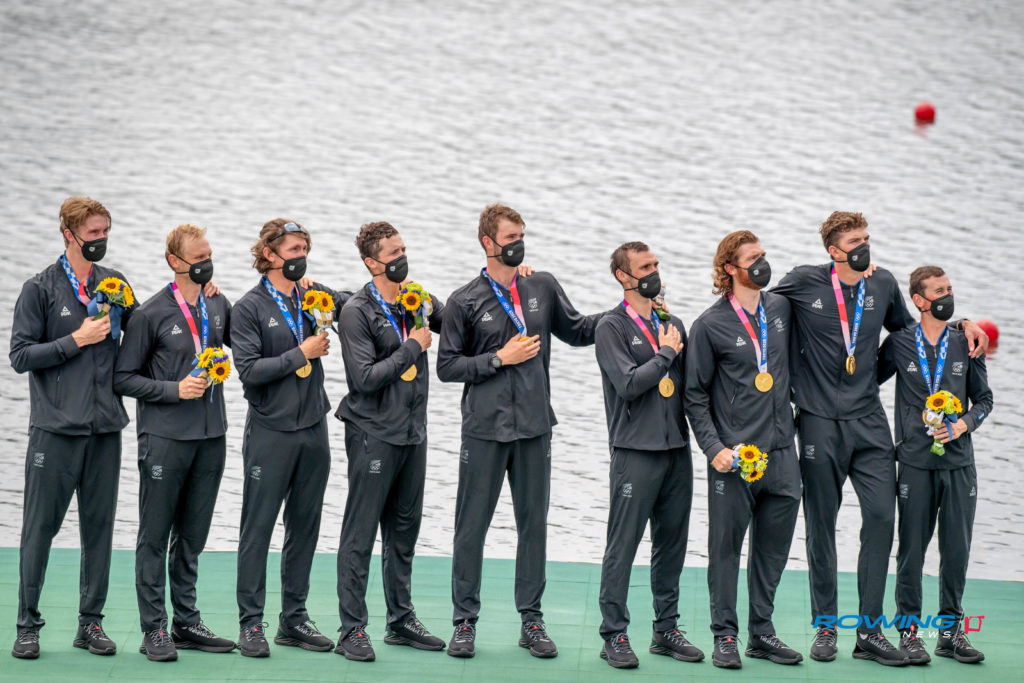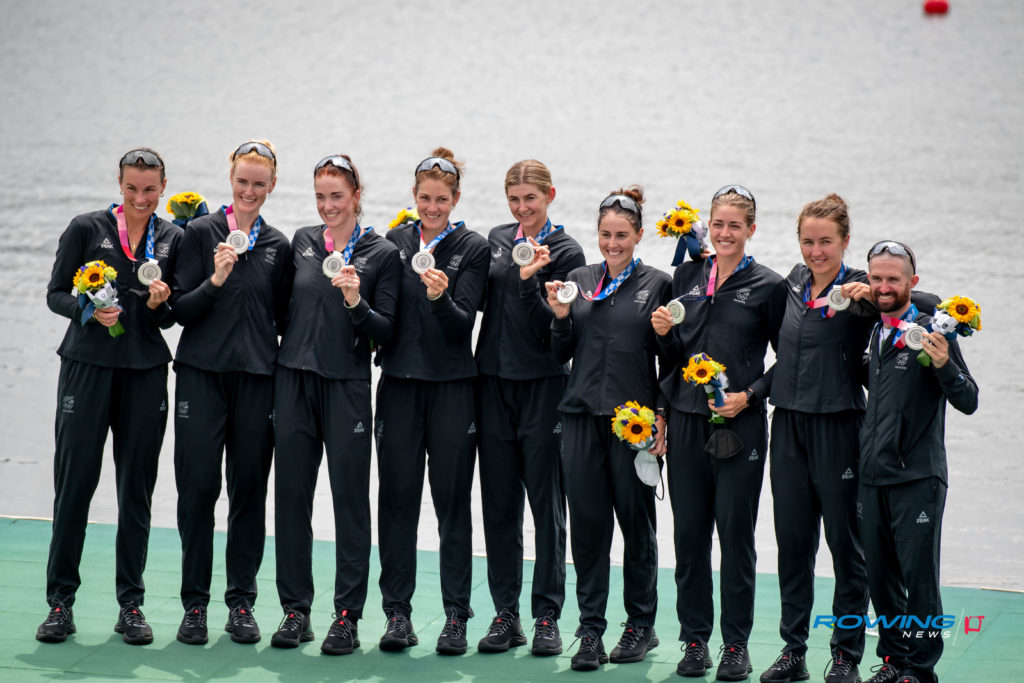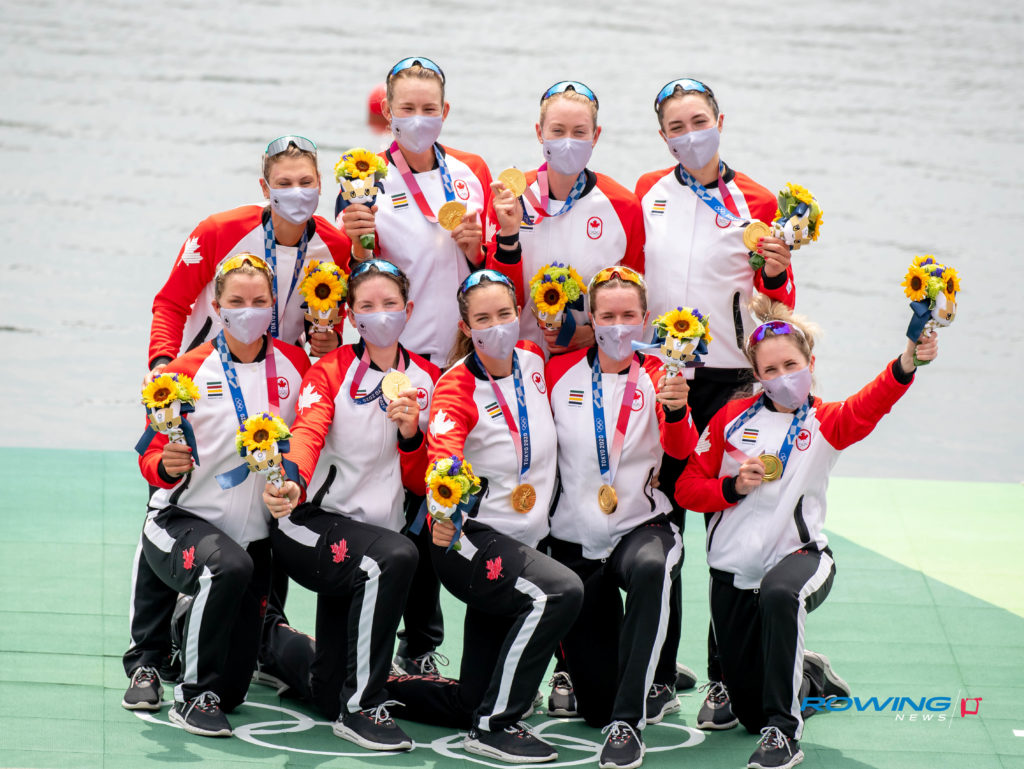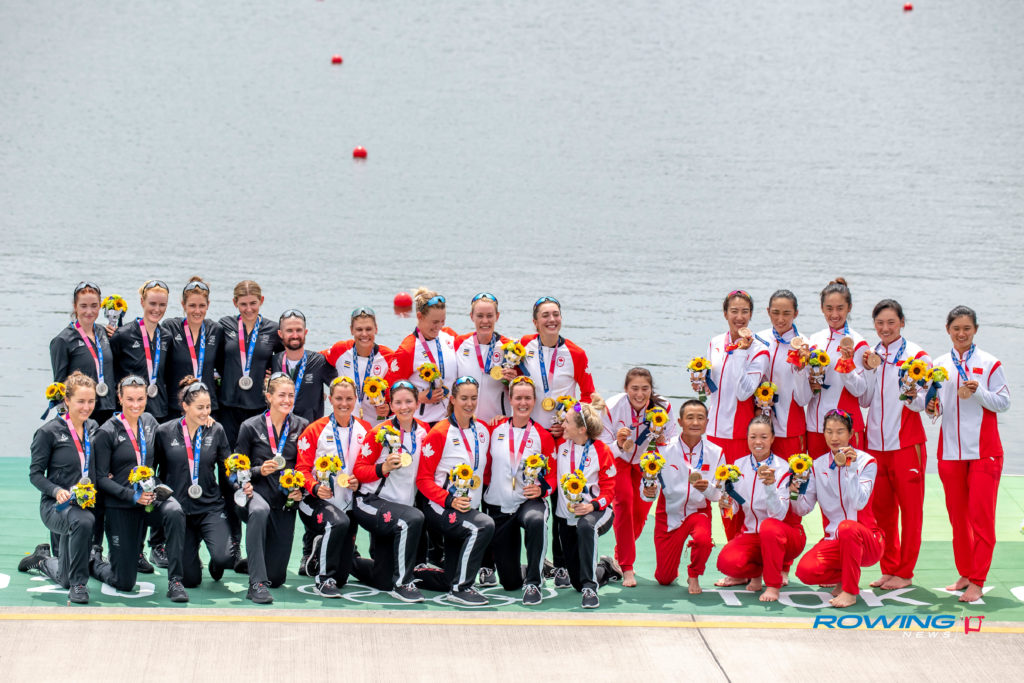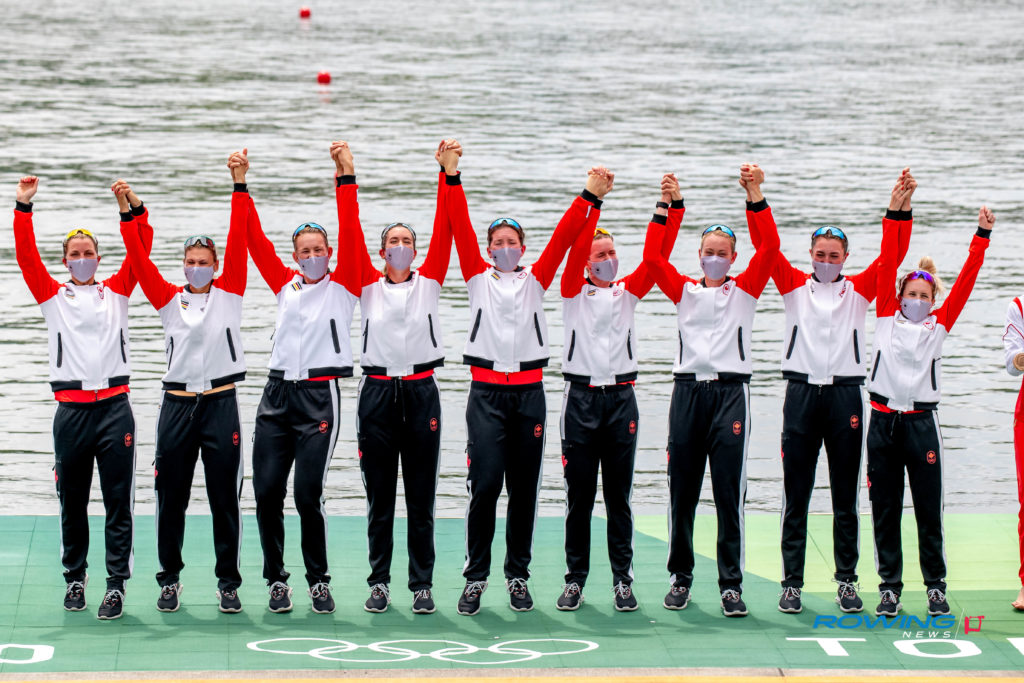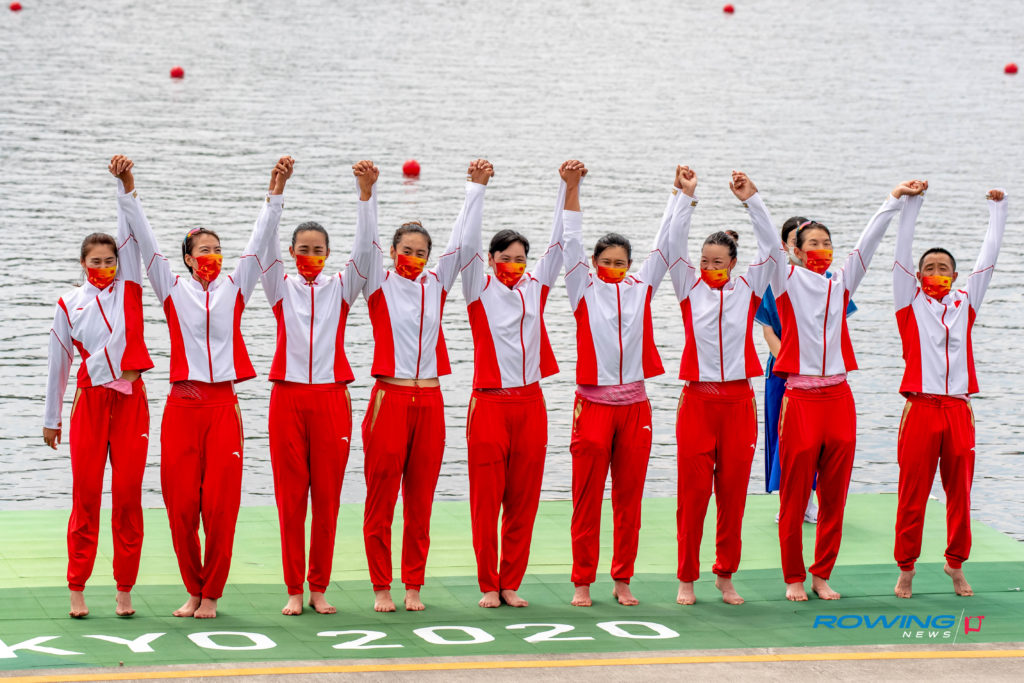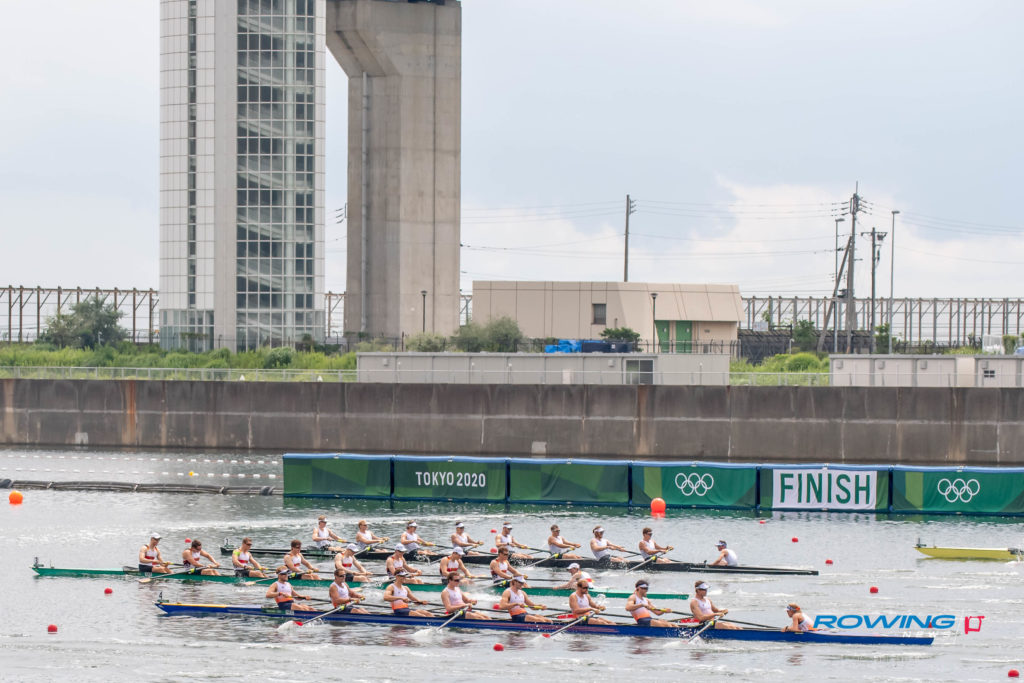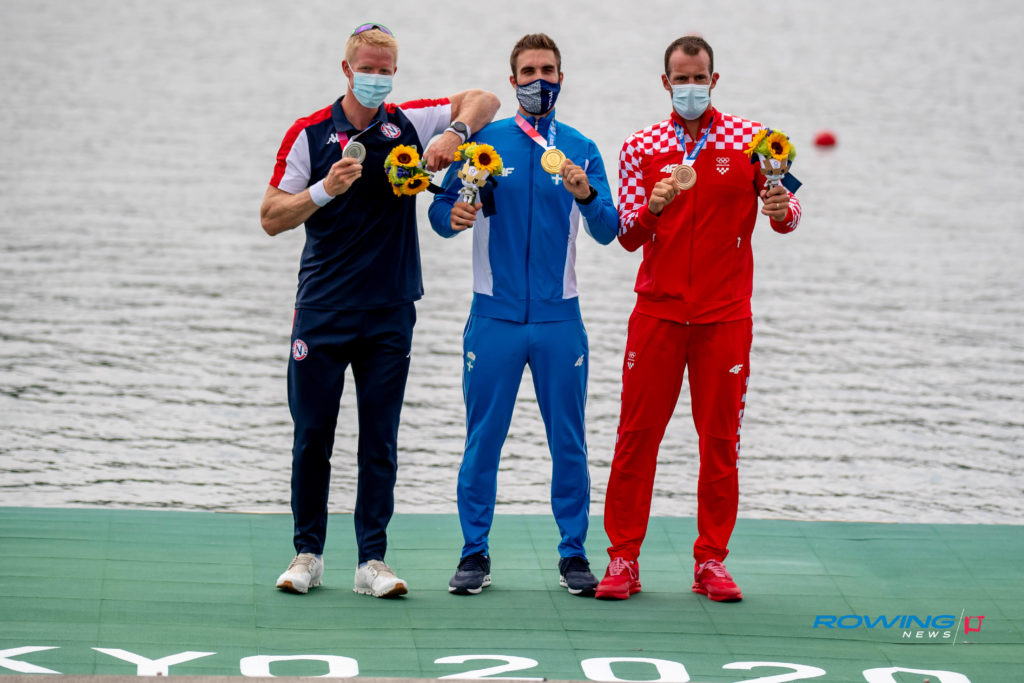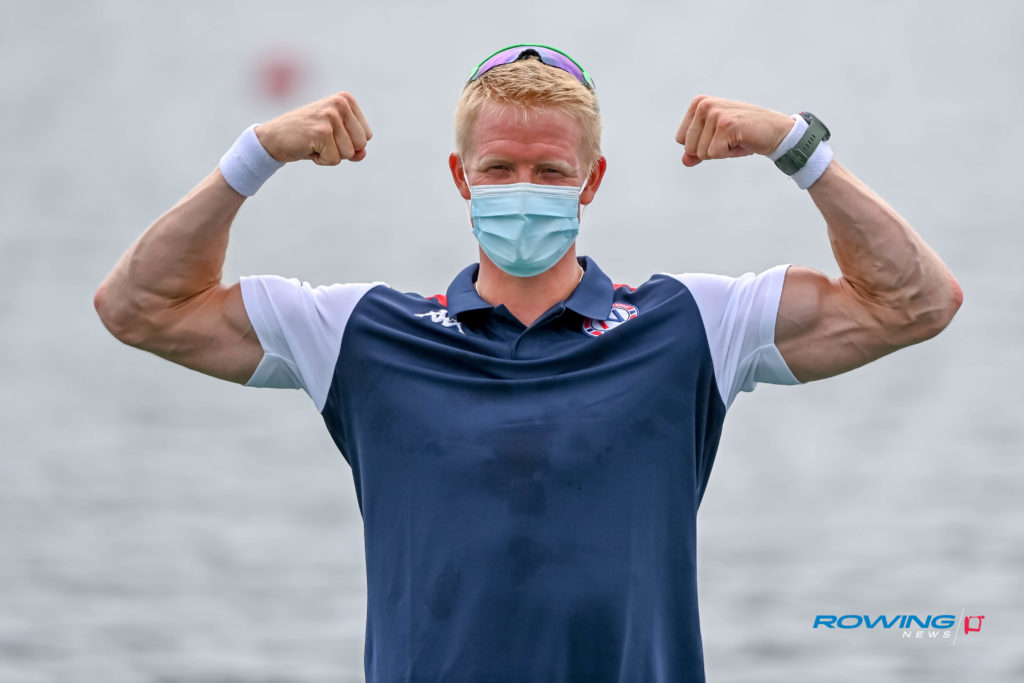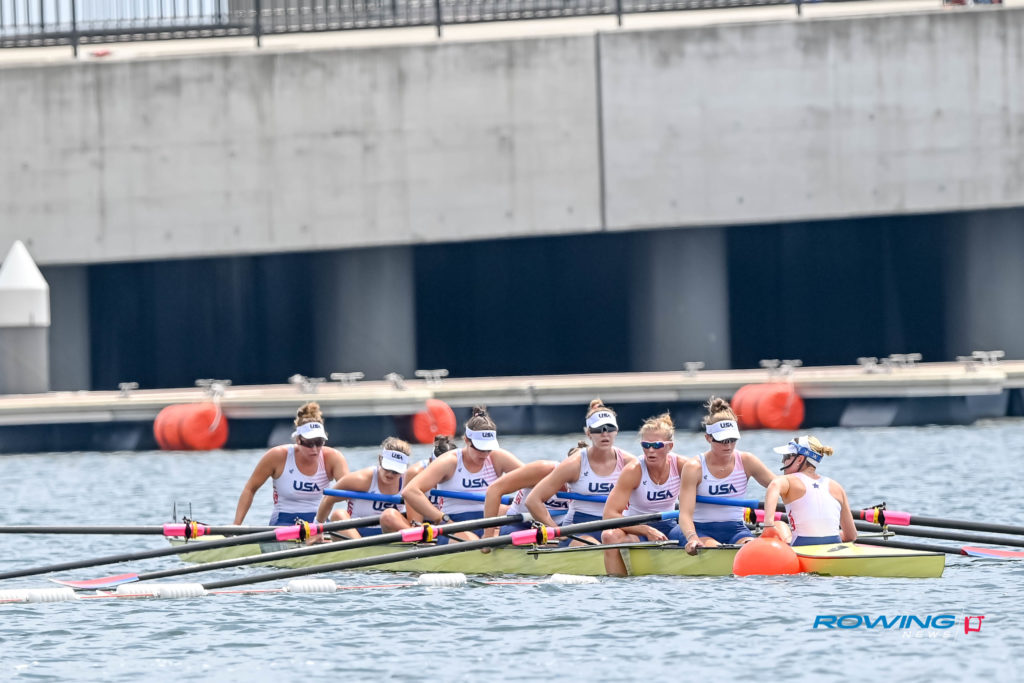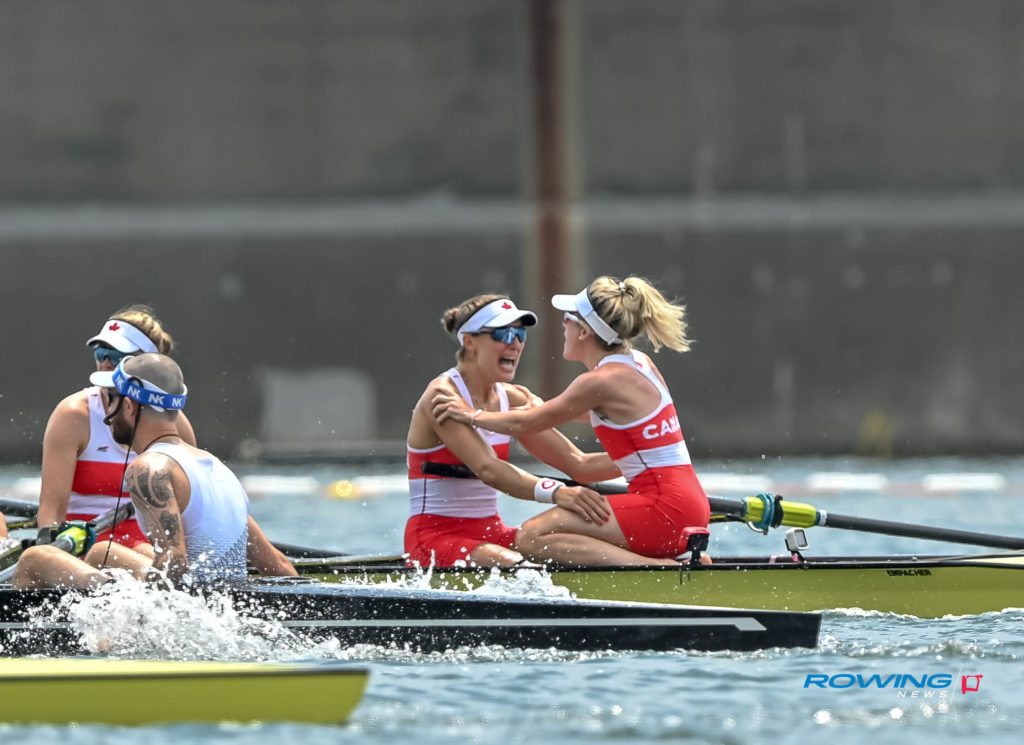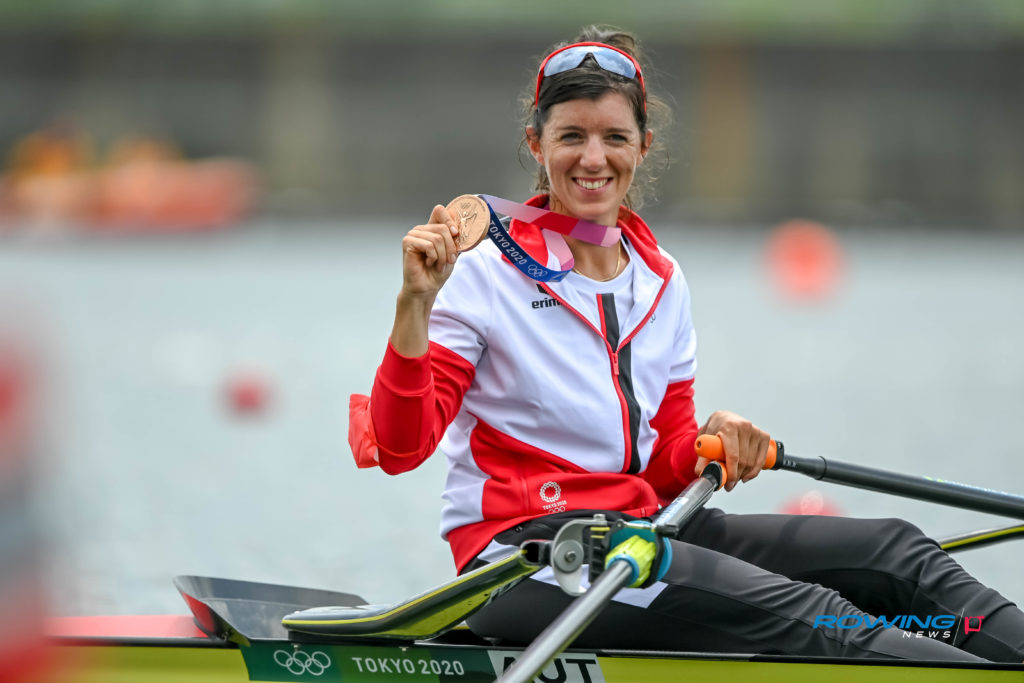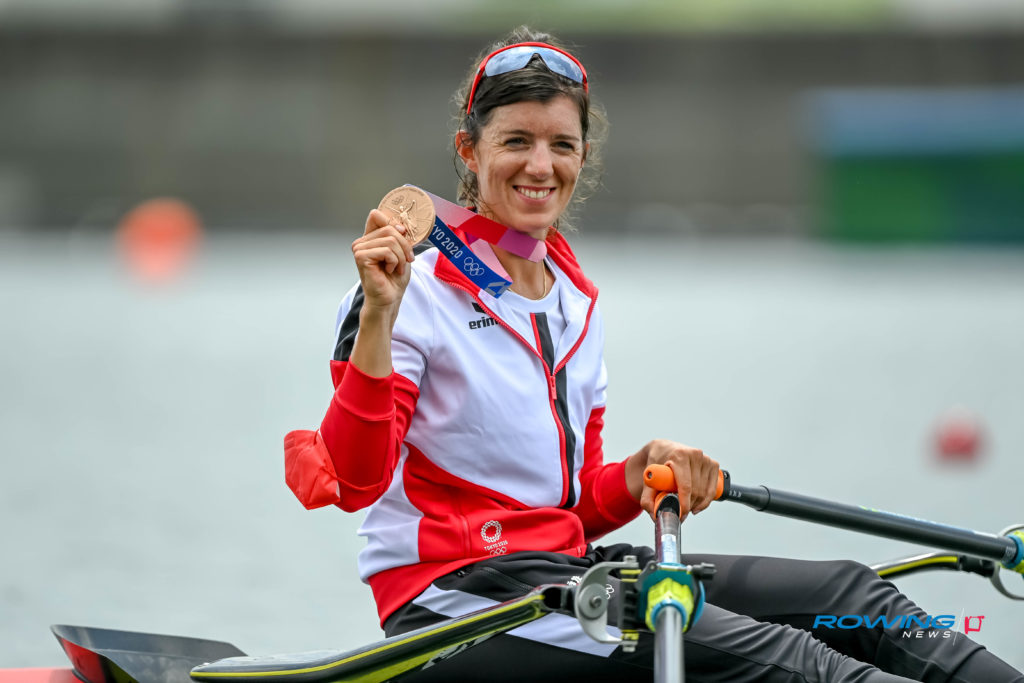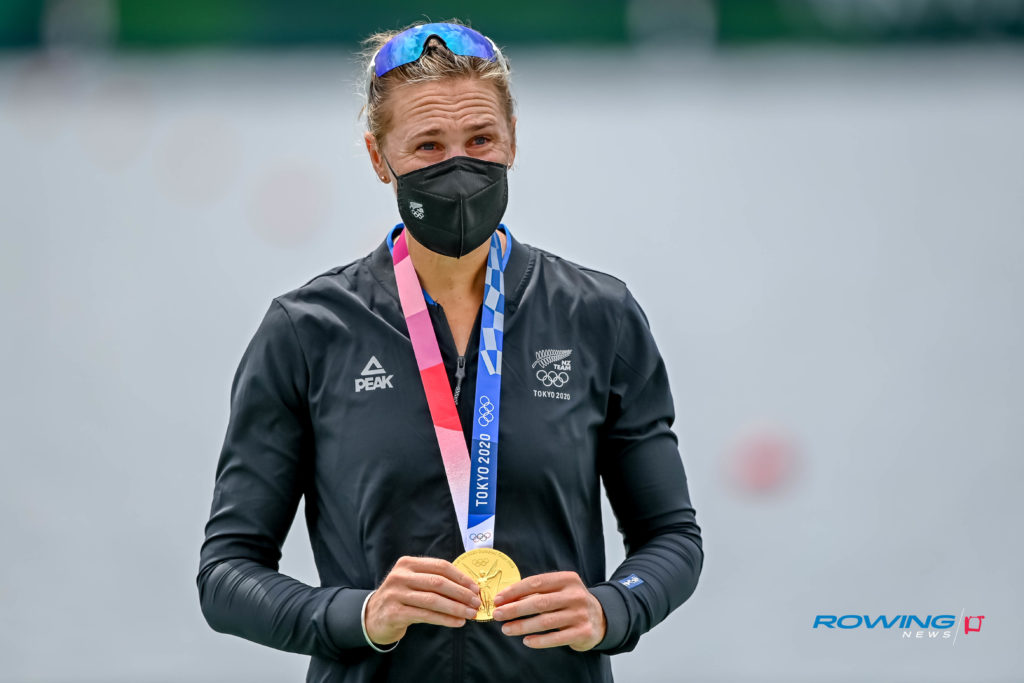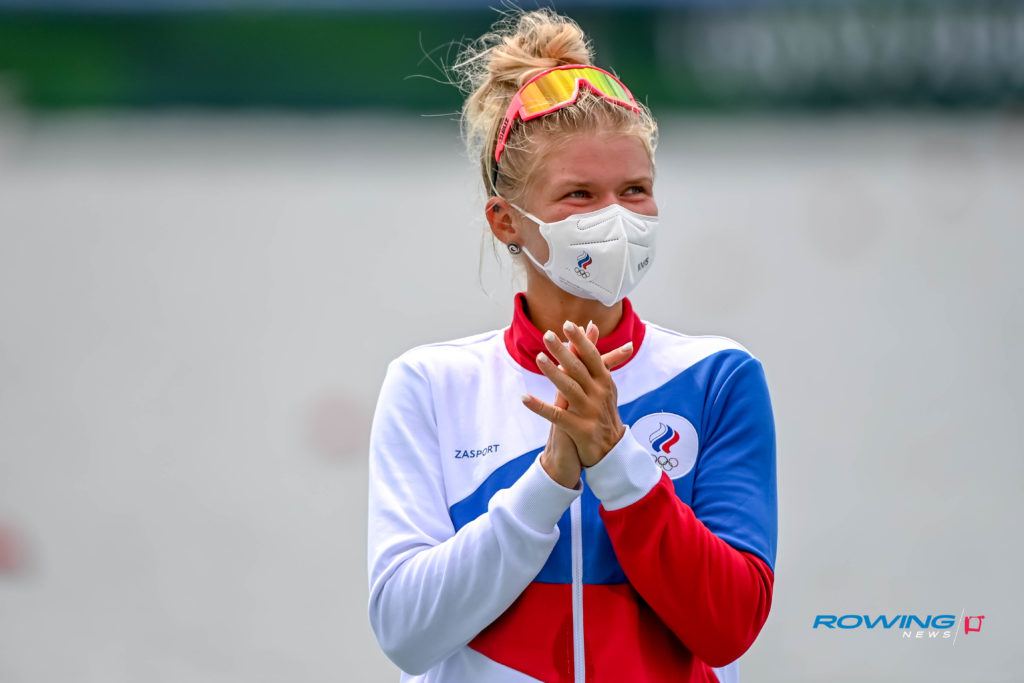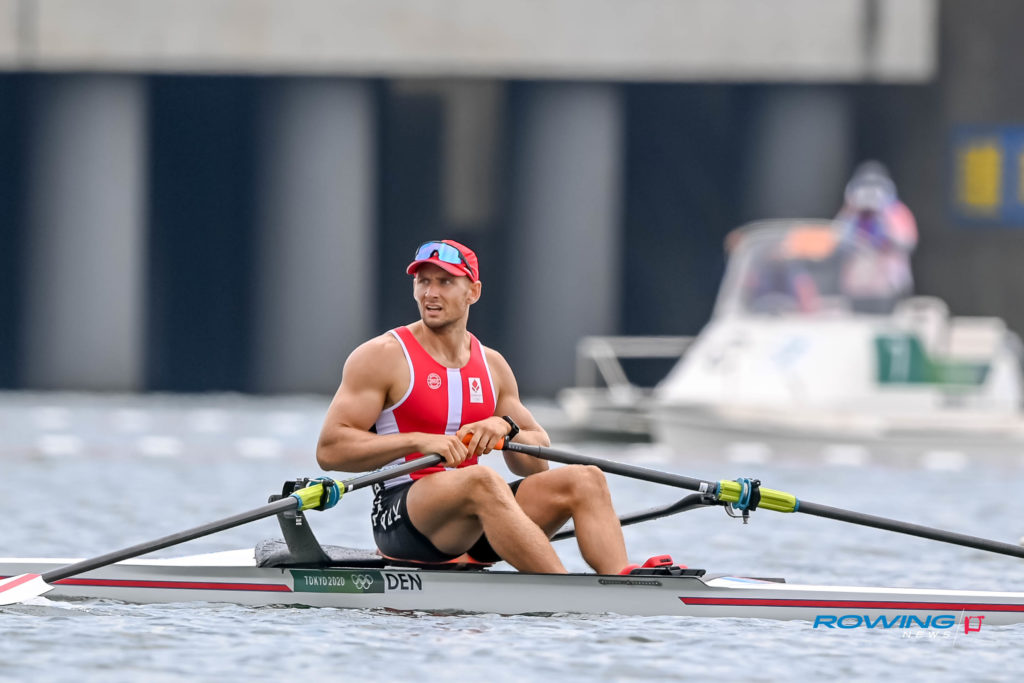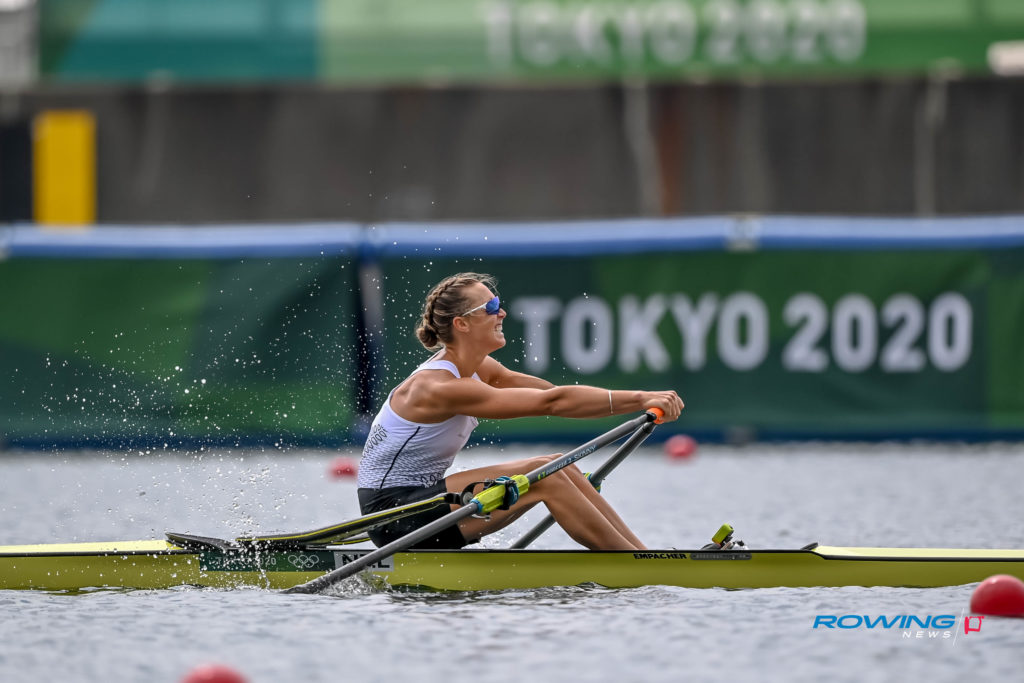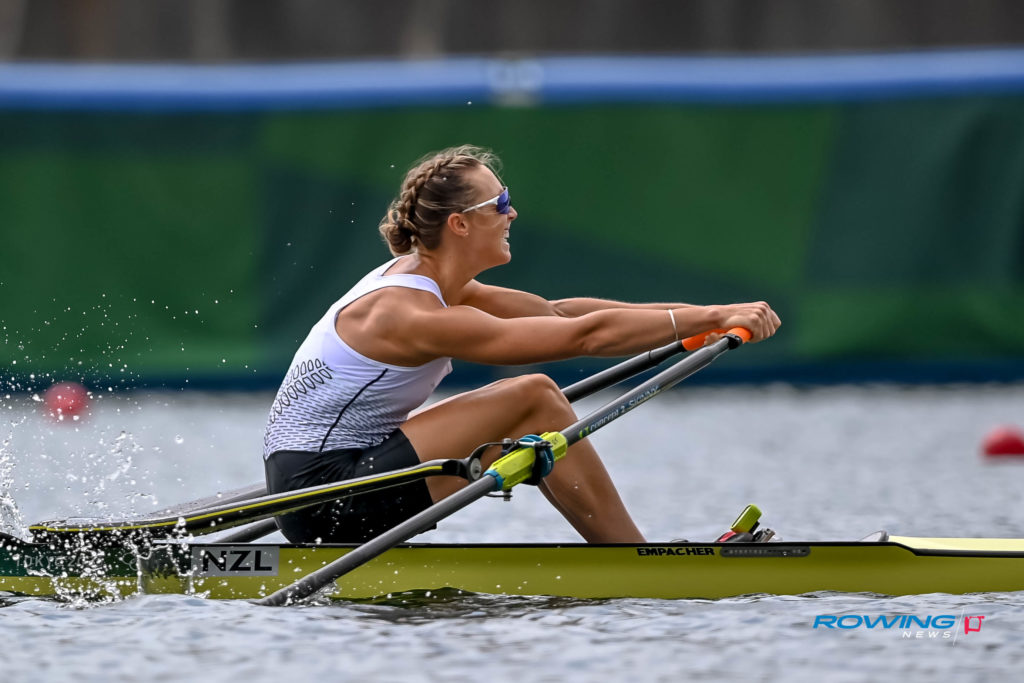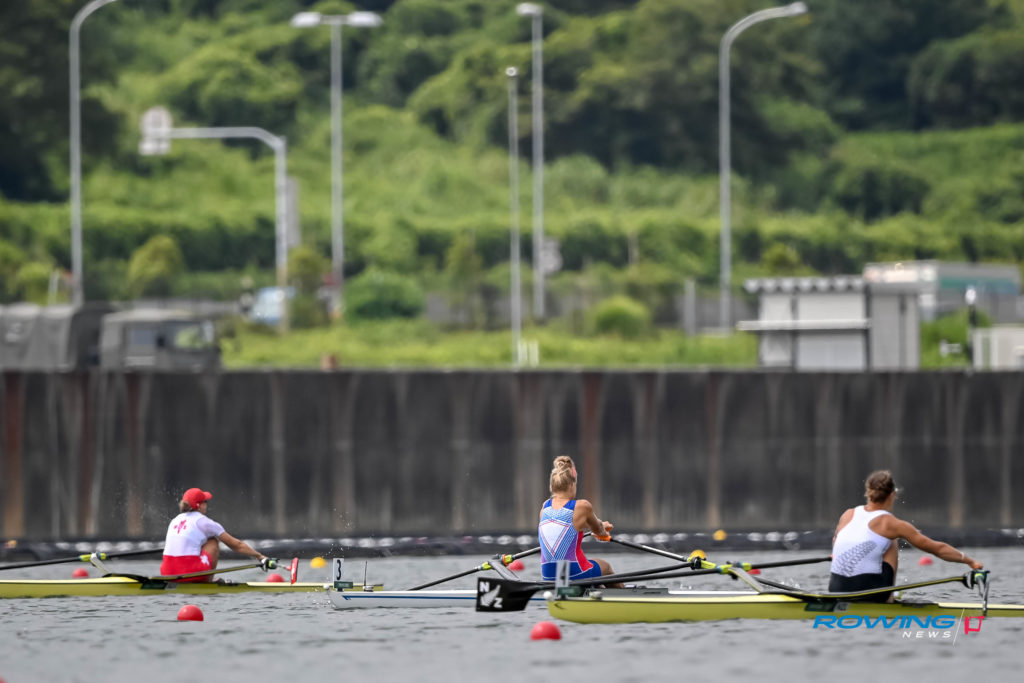PHOTOS AND STORY BY ED MORAN
To continue reading…
This article is exclusively for Rowing News subscribers. For as little as $5 a month, you can get access to the best quality, independent reporting on all the issues that matter to the North American rowing community.
Already a subscriber? Login
TOKYO, Japan – It was a day of firsts on the last day of Olympic rowing on the Sea Forest Waterway at the 2021 Tokyo Olympics, and not all of it was good for the United States.
Counting out the Games of 1908, 1912, and 1980, when the U.S. did not send a delegation to the competition, the U.S. has never experienced an Olympics where it did not win a medal in rowing.
That happened Friday when the men’s and women’s eight rowed in the finals in the last hour of the rowing competition and finished out of the medals, capping a week where the U.S. failed to earn a medal of any color.
Neither crew could capitalize on solid performances in their heats, where the women won and advanced directly to the final, and the men threw a scare into defending world champion Germany but finished second and advanced through the reps.
They fought but just could not draw out the race they needed Friday to pull through their respective fields. The men finished fourth behind New Zealand, Germany, and Great Britain. The women finished fourth behind Canada, New Zealand, and China.
On the other side of the firsts coin, the win for Canada was the first since 1992 in the women’s eight. China won a bronze, its first-ever medal in the women’s eight.
Emma Twigg won her first medal in four Olympic campaigns and set an Olympic best time in the process with a time of 7:13.97. Stefanos Ntouskos won the men’s single — the first-ever Olympic gold in rowing for Greece — another an Olympic best time in 6:40.45.

Also notable was the medal for the New Zealand women’s eight. It was the first time the Kiwi women’s eight has picked up a medal in the event, and among the crew were Kerri Gowler and Grace Pendergast, who had won gold in the women’s pair Thursday.
The U.S. entered nine crews in this Olympics and left without a medal.
It was that kind of week in rowing in the Tokyo Olympics.
What started early in the week with crew after crew not advancing finished with crews out of the medals on the closing day. The U.S. was represented in five finals in the women’s double, women’s lightweight double, men’s four, and the eights.
There is little doubt that the results will end in changes at USRowing. The American team won two medals in 2016, the women’s eight won gold and Gevvie Stone won silver in the women’s single.
But the men’s team did not produce a medal and vastly underperformed in Rio. The results 2016 by the U.S. squad caused turmoil within the national governing body that has not completely subsided.
In the past several months, the United States Olympic and Paralympic Committee has been overseeing an “independent review and assessment to identify root factors contributing to feelings of distrust and concern expressed by certain segments of the athlete population.”
There have been several recent news stories about that review and specifically name men’s coach Mike Teti as part of the examination. USRowing has repeatedly denied that any one coach is under investigation.
But it is safe to assume that the atmosphere that could result from having a law firm interviewing current and former athletes cannot be good for a team preparing for Olympic competition.
Following the conclusion of racing Friday, Matt Imes, high-performance director for the U.S. team issued this statement:
“With the conclusion of our competition here in Tokyo, I’m devastated for our athletes and staff who have trained and competed so hard for the last 16 months since the postponement of the Olympic Games in 2020,” Imes said.
“We obviously hoped to achieve better overall results. As an organization, we have already started the process of reviewing our national team programs, which will include feedback and analysis from this Games. USRowing is committed to making the necessary changes to provide our athletes with the best possible structure and environment to achieve success in Paris 2024 and beyond.”
It’s hard to say that everything that happened was a failure on the part of the U.S. squad. The amount of talent that arrived in Tokyo a few weeks ago, combined with the vast unknown that resulted from the pandemic delay that kept crews out of rowing for almost two full years, left a void of answers about who would be fast and who would not.
The best example of that came in the men’s and women’s single. Both defending world champions from 2019, Sanita Puspure of Ireland, and Oliver Zeidler of Germany failed to even reach the final.
Zeidler won the B final Friday, but Puspure withdrew for medical reasons that were not immediately clear.
Defending 2019 bronze medalist Kara Kohler also did not make the final and finished third in her B final.
Of the three women who reached the podium, only Twigg was there to race for a medal on Friday. Twigg, who has finished just out of the medals in the single the last two Olympics, emerged as the favorite to win her event as the week progressed, and in the final took the lead early and built a commanding lead to the finish by nearly four seconds.
Russian Hanna Prakatsen rowing as part of the ROC was second and Magdalena Lobnig was third.
“It’s pretty special,” Twigg said. “It’s been a long and rocky journey and to cross the line today with a gold medal was pretty mind-blowing and special. And [it is] probably representative of the people I’ve been surrounded by in the last Olympic cycle, people who have given more than me for me to be here.”
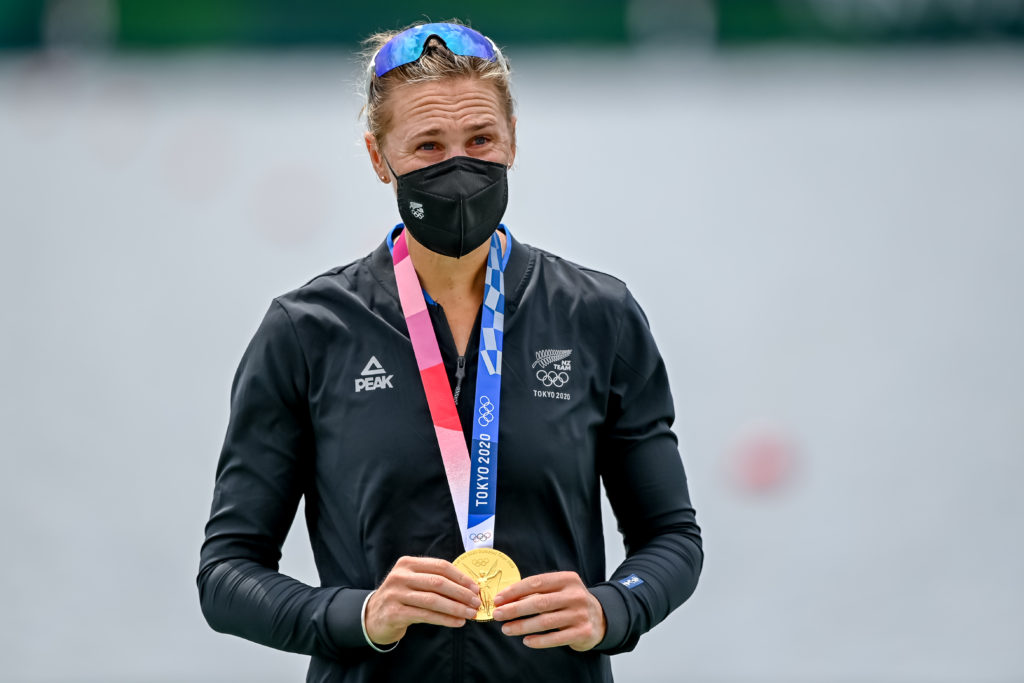
Twigg has been locked into her desire to earn an Olympic medal since 2019 and stayed with that drive throughout the pandemic.
Addressing her desire to keep racing how she was affected by the pandemic in an interview with Rowing News in September of 2020 Twigg said this:
“This period of time — and the thought that there could still not be a Games next year — reinforces the reasons I get up in the morning to train. I love the sport, I love what sports can do for the world and different communities, and I really want to make the most of the time I have left.
“The time off after the Rio Games, and the result, made me realize that it’s not about the medals. Don’t get me wrong: It would be an amazing feeling to be at the top of the podium, but at the same time, what I didn’t appreciate was the journey and being able to get up daily, to try to be better, and to do something I love. I know that it’s a very limited time in my life.”
Before the racing began, most thought the favorites to medal in the men’s single were Zeidler, 2016 Rio silver medalist Norway’s Kjetil Borch, Croatian Damir Martin, Sverri Nielsen of Denmark, and Mindaugas Griskonis of Lithuania.
But in the end, Stefanos Ntouskos of Greece emerged as the gold medalist. Borch was second and Martin third.

Ntouskos escaped most of the conversations about who would win.
“It means a lot, I thought one medal, but I didn’t believe this medal was a gold. But I am so happy and so proud for everyone who supports me.”
In the eights, the U.S. men have not won a medal since the 2008 Games when they took home a bronze from Beijing. Worse they failed to qualify a crew through the world championships for the and Rio Games.
This cycle, after the return of Teti, who led the team to gold in 2004 and the Beijing bronze, returned to the team and helped qualify both a four and an eight.
But nonetheless, the American team was, and still is young, and was not favored. Who was favored were Germany, the defending world champions and the most dominant force in the field throughout the 2020 cycle, and New Zealand.
The Kiwis did not qualify a crew in 2019 but assembled and a young team led by two-time Gold medalist in the pair, Hamish Bond. New Zealand qualified the eight at the Final Olympic Qualification Regatta in Lucerne, Switzerland in May and came to Tokyo ready to race.
Germany, Great Britain, and New Zealand traded leads throughout the race, and the U.S. held onto the pack, but just could not push through.
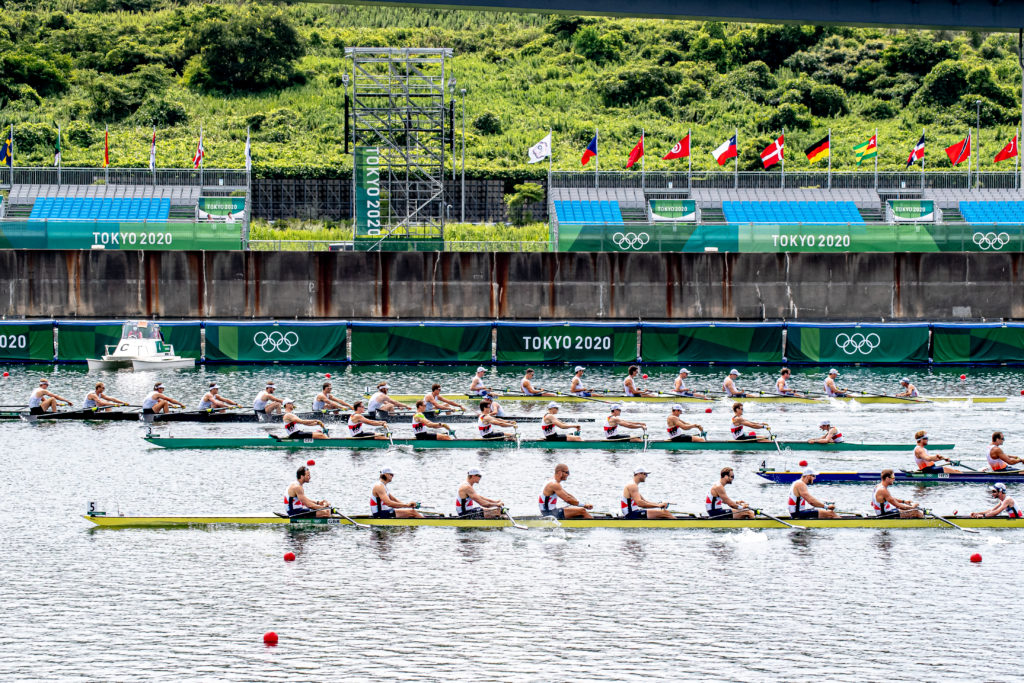
For Bond, who made leading the Kiwis a personal goal, it was a satisfying result, but he would not accept comparisons to the time he spends as part of the most famous, and historically dominant, men’s pair with now-retired Eric Murray.
“This doesn’t compare, with Eric, we came into London and Rio out favorites and to be honest it was just relief that we got across the line first and didn’t stuff it up,” he said. “Here though in the eight, it’s been a long campaign, 12 months, but we needed that 12 months. We’ve got guys 21 years old.
“If this regatta was held last year, we wouldn’t be sitting here. I managed to hang on along the way, the young guys elevated in the last months, it kept me going. They stood up and are so mature beyond their years. To achieve this medal with these guys is so special and a little bit surreal.”
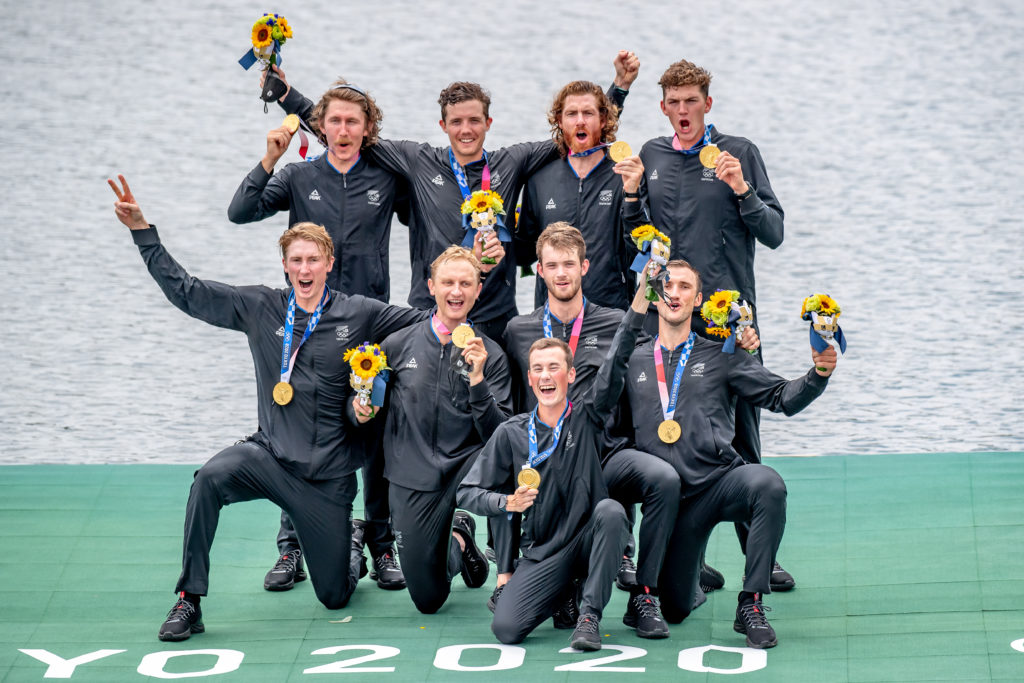
It was not as rewarding for the U.S.
But according to coxswain Julian Venonsky, his young crew will not be deterred from looking forward to the Paris Games in 2024.
“From my perspective, starting at the beginning of this quadrennial in 2017, this group is so young but has so much potential. I’m excited to see — we only have three years until the next one — to see where this program goes because I have the utmost confidence in them. I’m just so excited to see guys like Liam [Corrigan], Justin [Best], just keep progressing and keep improving at the trajectory they are. They are the best rowers I’ve ever had on a team,” he said.
“I’m proud of what we did. I’m proud of our team, I’m proud of our boat, I’m proud of our coaches Tim McClaren, Mike Teti, our entire staff. We had a good piece. We’re up against five of the fastest boats in the world and this is the tip-top stage.
“It’s disappointing. Obviously, we’d like to medal. Obviously, we’d like to win gold,” he said. “It stings, it always does but looking back we’re proud of what we did. We’re excited to represent the United States and we’re happy with how we performed.”
For the women’s eight, the loss snapped a streak of three consecutive Olympic victories. Like the men, the crew was comprised of mostly young women with limited overall international experience.
The only two returning Olympians were Meghan Musnicki, who was in the London and Rio boats, and coxswain Katelin Guregian.
“I don’t think there’s anything that would’ve changed the effort we put out there,” Musnicki said. “The drive that we put in, how hard we’ve trained for the past five years. I guess no. I don’t think there’s anything that would’ve changed that. All nine of us put it all out there. I’m very proud of that.”
Added Guregian:
“I am deeply, deeply proud of myself and my teammates and my coaches and the women that aren’t in my boat that are on the team back home and that are here at this regatta. To get here took an inordinate amount of effort and belief in ourselves and each other. I have said this to the group and I would do the whole five years over again even knowing what the result would be,” she said.
“That’s how much these women mean to me, that’s how much lining up at the Olympics with these eight strong, independent, incredible women, that’s how much that means to me. It’s the honor of my lifetime. I wouldn’t give it up for anything.”
During the majority of the time, the U.S. women were the dominant crew in women’s rowing, it was the Canadian women who chased them.

Friday, it was Canada’s turn. With New Zealand, The Netherlands, and Australia all favored ahead of them, Canada jumped into the lead in the first 500 and fought all attempts to beat them.
“I just really believed in our boat and that belief informed my decision to join the race,” said coxswain Kristen Kit.
“We had a plan and the moves went slightly earlier than we anticipated, I think the strength of this crew showed through. Every time I made a call they responded. From the coxswain seat, I am really lucky,” she said.
“There’s another coxswain helping here and he told me, decide what color the medal is from the 250 to the 500 and that stayed in my brain today. The girls responded when I asked.”




